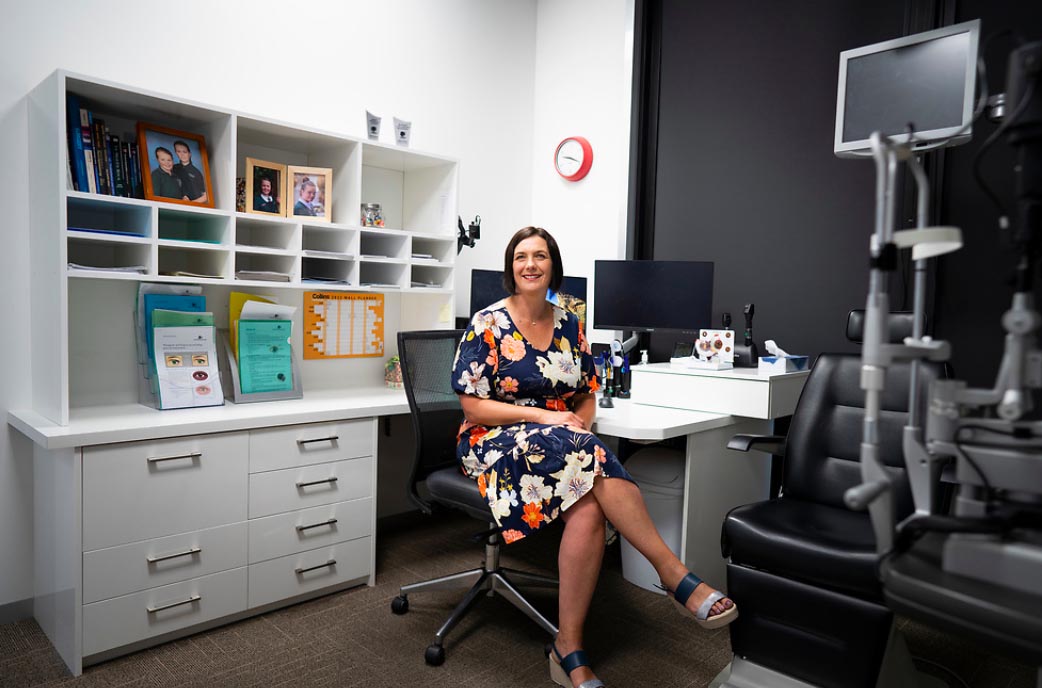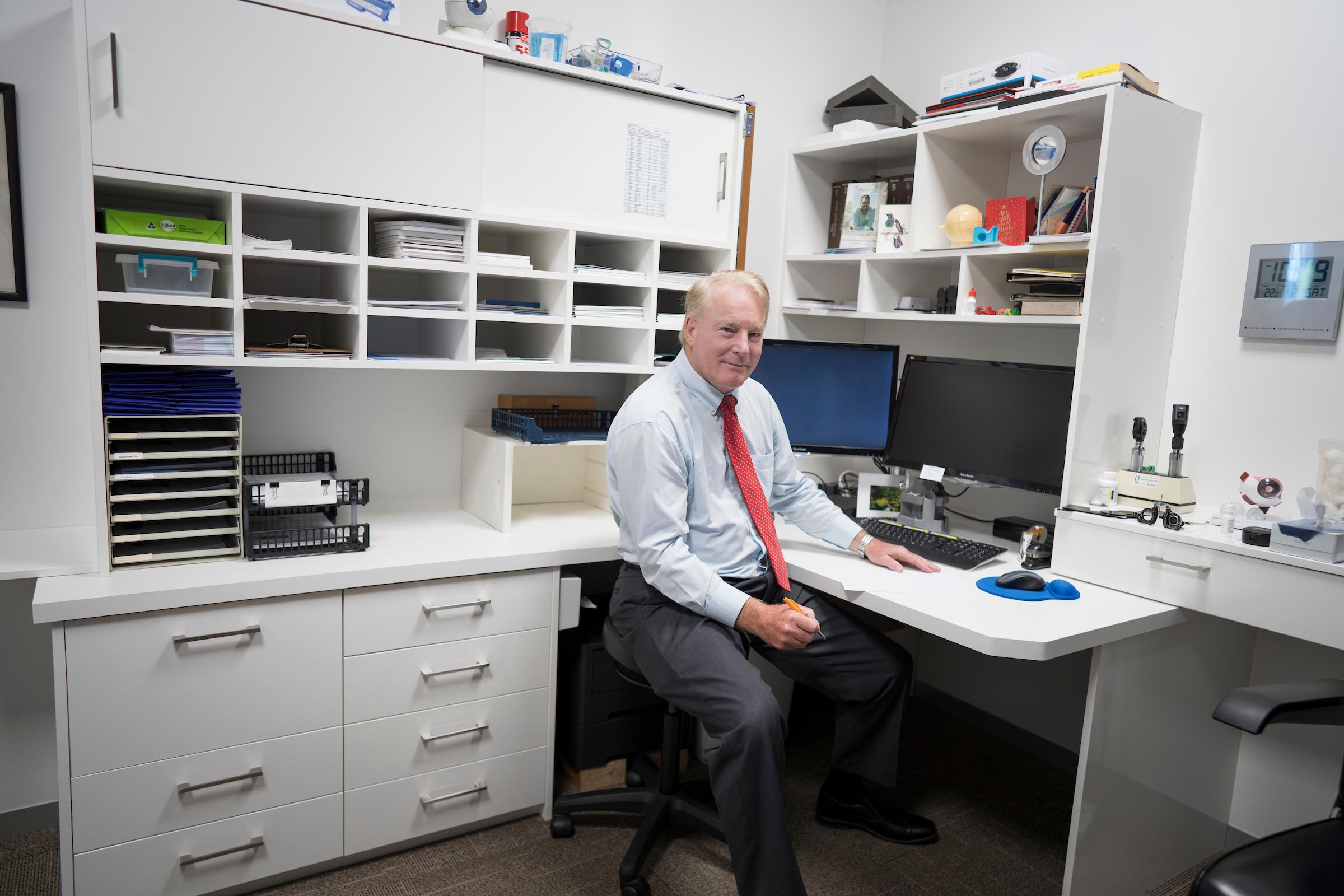Dr Rahul Dwivedi
Consultant ophthalmologist,
glaucoma & cataract specialist
BSc (Hons), MB ChB, FRCOphth, FRANZCO
Dr Rahul Dwivedi provides a wide range of specialist knowledge and insightful, empathetic care in his work here, ensuring patients receive the highest standards of treatment.
Dr Dwivedi worked in the public health service in England before travelling to New Zealand to complete a year-long fellowship at the University of Auckland and work with the Auckland District Health Board. From there he moved south to take up a position at the CDHB as glaucoma clinical lead and into his role at Southern Eye Specialists.
The point of view
Trained in Liverpool, Dr Rahul Dwivedi arrived in New Zealand in 2019 for what was supposed to be a year-long fellowship. Arriving soon after was a certain global pandemic however. So that original short stay become longer and, happily for the team here at Southern Eye Specialists, eventually something more permanent.
Growing up around hospitals with a family of doctors, it is no wonder Dr Rahul Dwivedi decided to study medicine. However, the career focus was no fait accompli.
“I was attracted to the arts and sciences equally in school,” he says. “I thought medicine was where I could blend both interests into one.”
With a particular interest in classics and ancient history, Rahul relished studying the history of medicine in his first year at the University of St Andrews in Scotland, finding the link between ancient practices and modern medicine interesting.
“There was a method to the madness, so to speak. We’re still adapting their techniques. We’re still learning from history.”
After completing his medical degree from the University of Manchester, Rahul worked for the National Health Service (NHS) in England and embarked on Ophthalmology specialty training at the world-renowned St Paul’s Eye Hospital in Liverpool. Dealing with large volumes of patients (often with complex eye conditions) in a high-pressure environment under excellent supervision provided the ideal foundation for his career as a Glaucoma surgeon.
“For me, I really had to put my head down and focus on the working hard. It was about getting runs on the board,” he says.
Rahul then travelled to New Zealand to complete a year-long specialist Glaucoma fellowship at the University of Auckland and Auckland District Health Board. However, the inopportune timing meant that he found himself isolated and adrift when Covid struck towards the end of his fellowship.
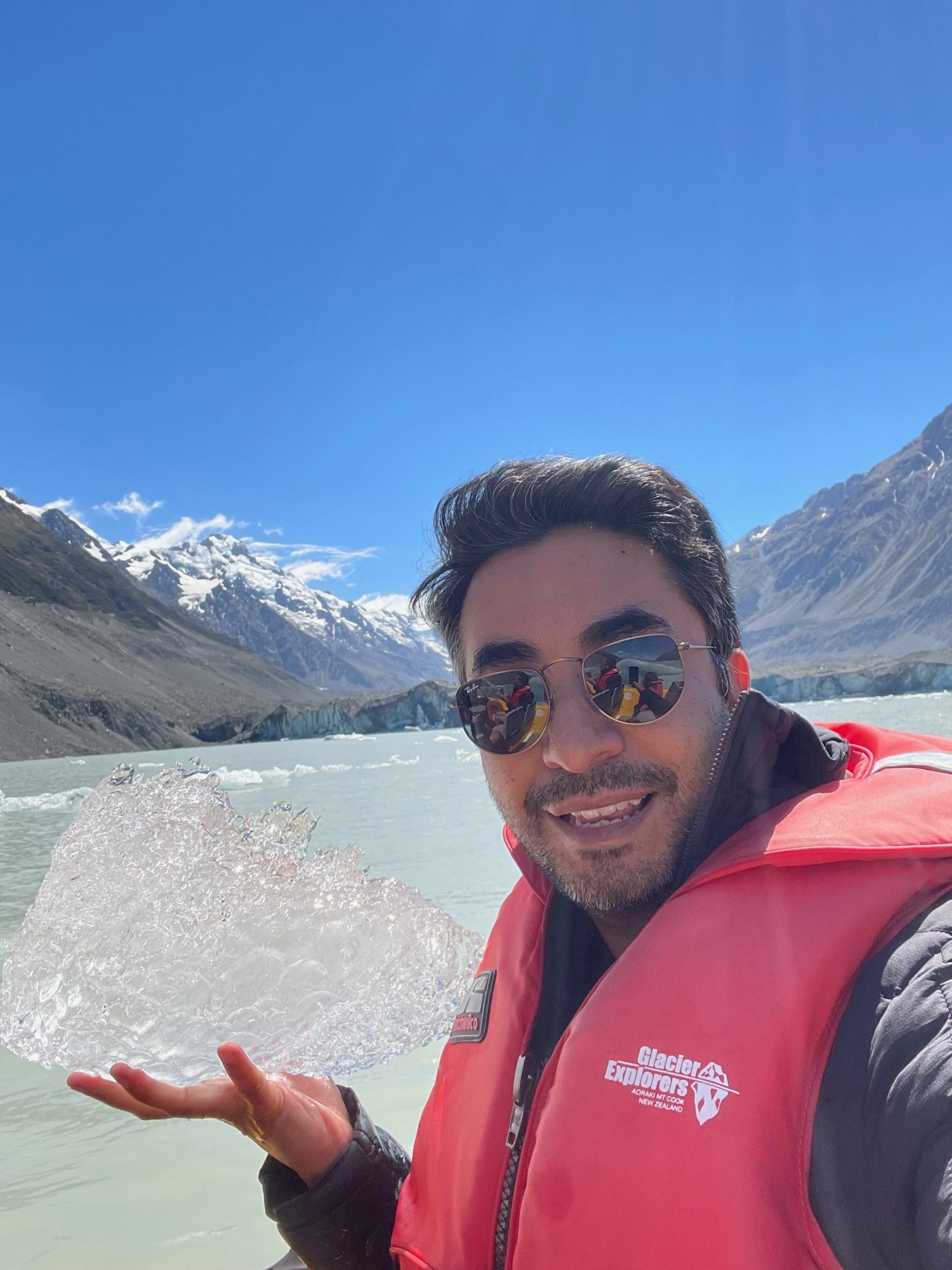
“When I came to CDHB as the Glaucoma Clinical Lead, I was also given the role of Audit & Clinical Governance Lead. It was valuable work to tackle, helping to improve standards and safety, and I could throw myself fully into it.”
“Honestly, it was one of the most challenging times of my life,” he says. “My wife was stranded in the UK. My children were stranded in Singapore with my in-laws. It took over a year before we could be reunited as a family in Christchurch.”
“Being in a new country with no extended family for help and adapting to new ways of doing things professionally was difficult. Then there was the inability to go home to the UK to visit family – I wasn’t sure if I’d be able to make it back due to the strict border policies at the time.”
There was a small silver lining to not having his wife and children in New Zealand, as to begin with he “could throw myself completely into the work”.
“When I came to CDHB as the Glaucoma Clinical Lead, I was also given the role of Audit & Clinical Governance Lead. It was valuable work to tackle, helping to improve standards and safety, and I could throw myself fully into it.”
“And from a personal point of view I was very lucky,” he says. “I had a strong social circle of local Kiwis both in Auckland and Christchurch – and the support was incredible.”
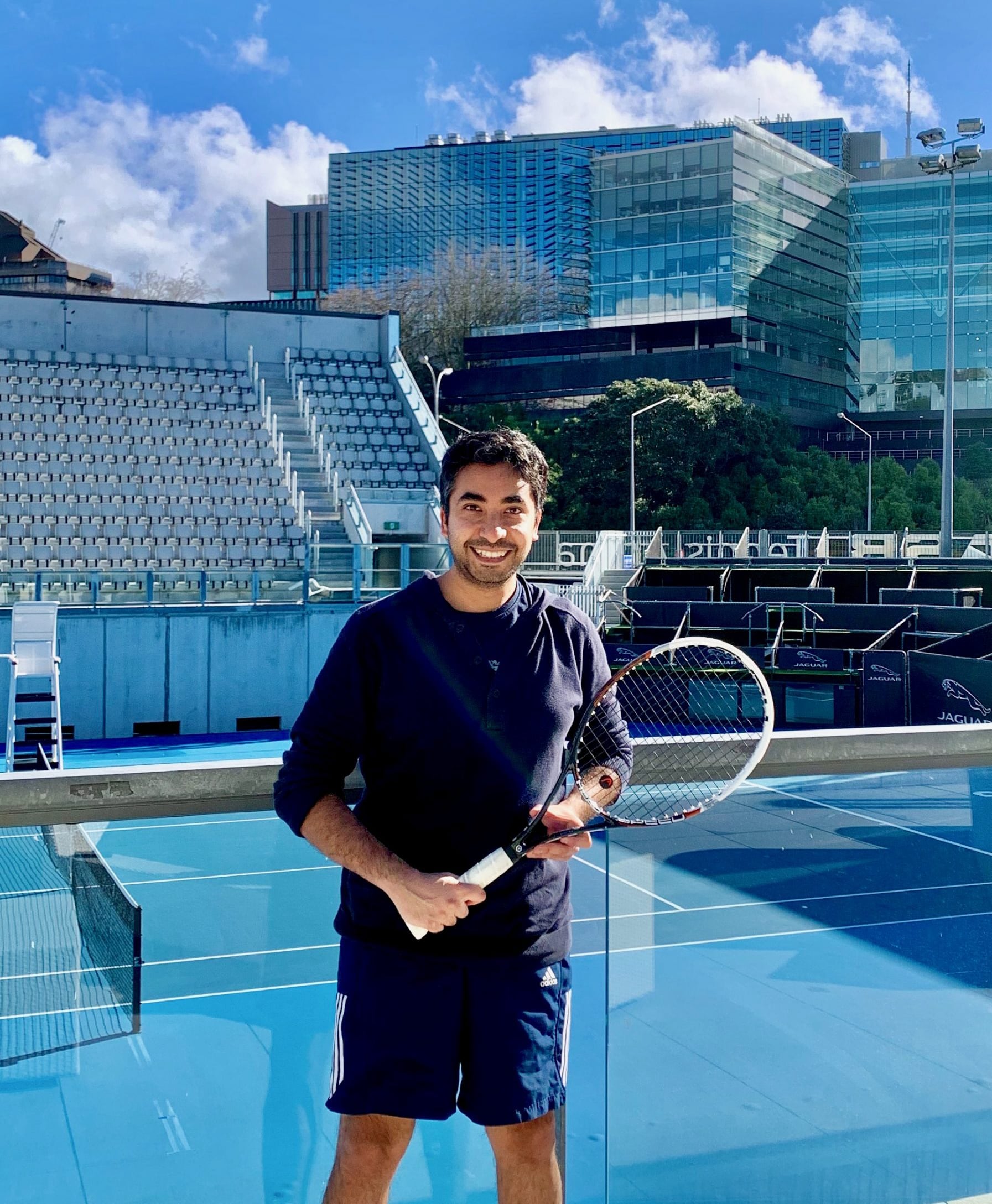
“If you lack curiosity, if you lack the desire to be innovative, you’re going to fall behind very quickly in the quality of care you provide to your patients.”
Now well-settled in Christchurch and reunited with his family, Rahul is “trying to get the balance between work and life – and sometimes achieving it.” Having two children under the age of 7 helps the young doctor maintain an inquisitive mindset.
“As I was told at school, the best geographer in the world is a six-year-old – because they’re always questioning. I appreciate that in my children too. They keep me on my toes!”
It’s a perspective that’s helpful at work as well.
“You always have to stay up to date, and you have to keep looking to better yourself.
If you lack curiosity, if you lack the desire to be innovative, you’re going to fall behind very quickly in the quality of care you provide to your patients,” he says.
Empathy and curiosity prove helpful when establishing a close working relationship with patients too.
“While we share a huge amount in common, I’m still, at first glance, quite different from the doctors some patients may be used to,” says Rahul. “But it only takes a minute or two for us to break down any barrier and then we can get on with the important stuff.”
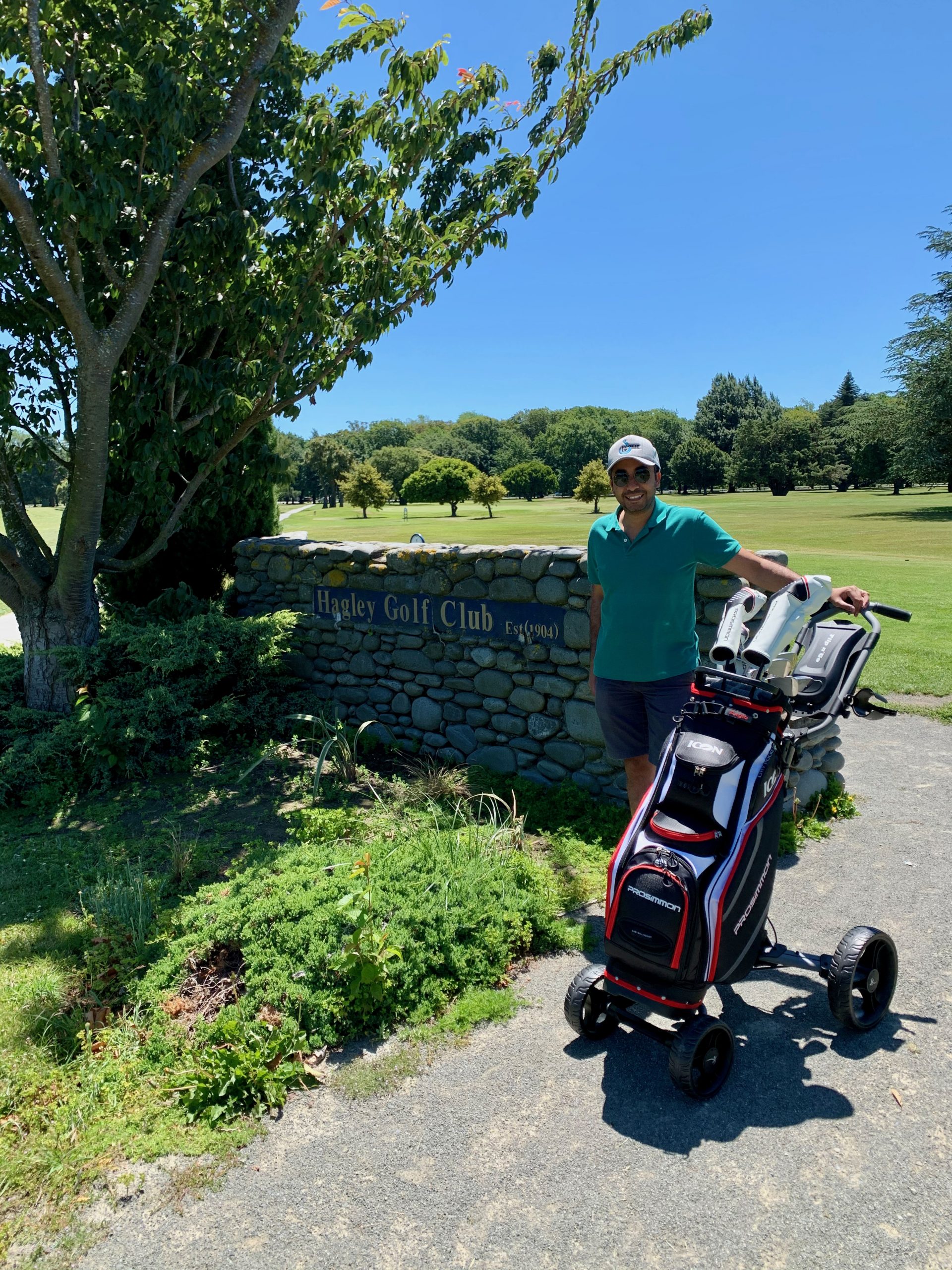
“I think it’s highly important to understand who patients are, what they like, and what impact their disease has had on their quality of life. You can’t treat everyone in the same way – nor would you want to.”
He takes pride in forming this solid rapport, and it’s something which has seen him quickly build an excellent reputation among patients.
“I think it’s highly important to understand who patients are, what they like and what impact their disease has had on their quality of life. You can’t treat everyone in the same way – nor would you want to.”
“I always imagine what it would be like if it was my parents on the other side of the conversation, or if it was me,” he says. “How would I react? As long as you stick to that template, no matter who you’re faced with, you’ll be able to give a good account of yourself as a doctor.”
Rahul’s exceptional communication skills certainly help to put patients at ease. Part of this is in his ability to relay complex information quickly and clearly without condescension.
“I do like to break things down into analogies and I guess I’m a storyteller at heart,” he says.
“For glaucoma, for example, I will often use plumbing analogies. The drain is blocked, the tap is on, and the pressure is building up. So, we either need to improve the drainage or turn the tap down – most of my treatments are actually built around these two approaches.”
“My first impressions of New Zealand as a child was from the cricket team. The way they carried themselves on the pitch, the pugnacious but respectful way they approached the game.”
As you may have guessed, with the earlier ‘runs on the board’ comment, Rahul is also a passionate cricket fan. Having “grown up in a household mad about cricket”, played the game for many years, and followed his beloved Indian team through every series, his passion for the game is implacable.
“Cricket is like chess,” the leg-spinner says, “There is the attention to detail and nuances of the game and, often, a remarkable ebb and flow. You can be on top one minute and then it can be a struggle.”
“It requires a lot of patience, there are always different angles to consider, and there are many intricacies involved too. And, in that respect, it really appeals to my personality. It’s a thinking person’s game, and a lot of teamwork too.”
While he won’t be switching allegiances from India just yet, Rahul admits to having “a real soft spot” for the New Zealand team.
“It (the team) was actually part of the appeal of coming here,” he says. “My first impressions of New Zealand as a child was from the cricket team. The way they carried themselves on the pitch, the pugnacious but respectful way they approached the game.”
Back then he was impressed with how the small country was able to produce so much talent, respecting their drive to succeed against adversity.
It was a similar ethos of collaboration and mutual respect that attracted him to Southern Eye Specialists.
“It was an inviting atmosphere, there was a real sense of teamwork with every subspecialty combining well and, really, it was just a good bunch of people,” he says. “It’s really nice being able to consult with the rest of the team here. Supporting me as a friend and professionally, they have been incredible.”
“They’ll drop over to help me move furniture, they’re ready to go out for a cup of coffee to talk things over. With their help it’s been possible to overcome any challenges quickly.”
